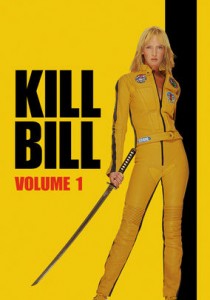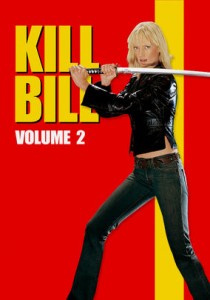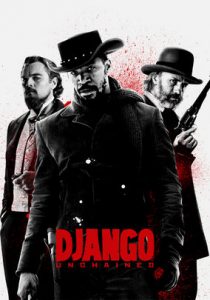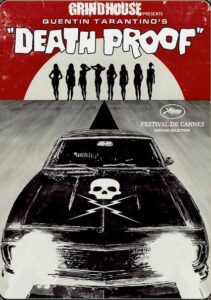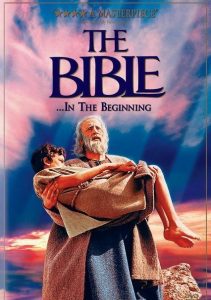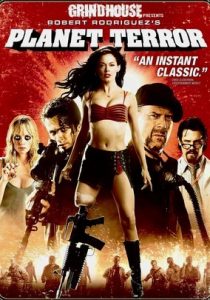Kill Bill: Volume 1 and Volume 2- 2003/2004
Director Quentin Tarantino
Starring Uma Thurman, David Carradine
Top 250 Films #98
Scott’s Review #322
Reviewed January 3, 2016
Grade: A
Despite being released as separate films (Fall of 2003 and Spring of 2004), Kill Bill: Volume 1 and Kill Bill: Volume 2 are one grand, sprawling feature.
The films were shot as one, but at a running time of over four hours, it was impossible to release them as one, so director Quentin Tarantino decided to release his masterpiece martial arts film as two sequential films.
I have decided to review them as one since Volume 2 is a clear continuation of Volume 1.
From a story perspective, Kill Bill is a basic revenge thriller. The plot is not complex nor ingenious and is rather ordinary containing B-movie components- think the really bad Kung-Fu films of long ago.
What makes Kill Bill an extraordinary masterpiece, however, is the style that exudes from the film, thanks to the direction and creation of Tarantino.
The film is brimming with good flavor and crackling dialogue of an intelligent sort.
Characters have long conversations with each other-not for redundancy’s sake- in between the endless martial arts and bloody sequences.
We meet our heroine, The Bride (Uma Thurman), in a chapel in El Paso, Texas. About to be married to her groom, the entire wedding party is suddenly assassinated in a bloody fashion by the Deadly Viper Assassination Squad.
Their leader, Bill (David Carradine), shoots The Bride after she reveals to him that she is carrying his baby.
The film flashes forward four years later- The Bride has survived the massacre but has been comatose ever since. When a hospital worker rapes her, she escapes and vows revenge on each one of her attackers- the revenge culminating with Bill.
Her path of destruction leads her to Japan.
Like most of Tarantino’s films, Kill Bill is divided into chapters and often goes back and forth from past to present.
The brilliance of Kill Bill is its pizazz. We know The Bride will get her revenge on the assassins, we just do not know in what way or how bloody the slaughters will be.
The film contains copious amounts of blood and swords and machetes are everywhere to be found.
The slow drawl dialogue as The Bride has conversations with her prey before she kills them, oftentimes ends in a big fight scene. Her first revenge, against Vernita (Vivica A. Fox), is unique in that it takes place in Vernita’s kitchen as her young daughter is happily eating her breakfast cereal.
The entire battle ensues in the kitchen and we are left watching blood and cereal.
It is Tarantino’s unique style of filmmaking and storytelling, adding violence, and long character conversations, that give Kill Bill, and all of his other classic films, his unique brand, and stamp of approval.
I dearly hope he continues to make films that challenge the norm, for years to come.
